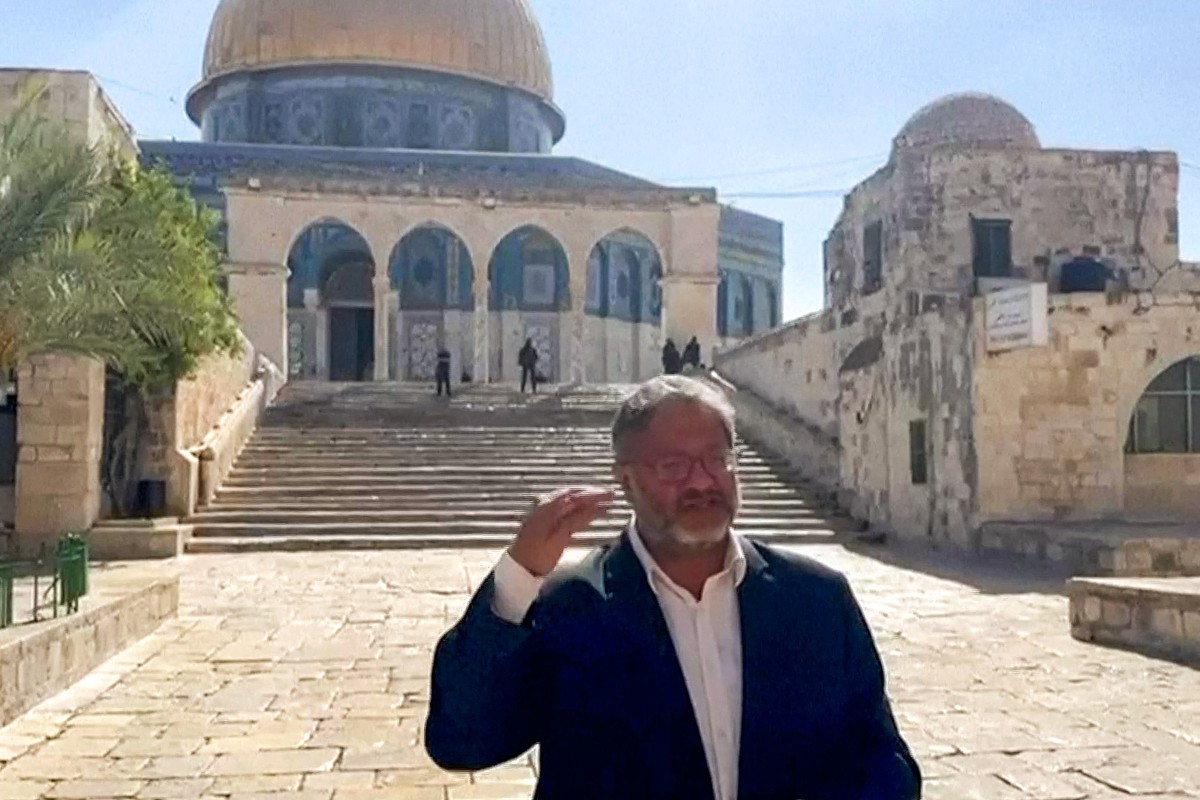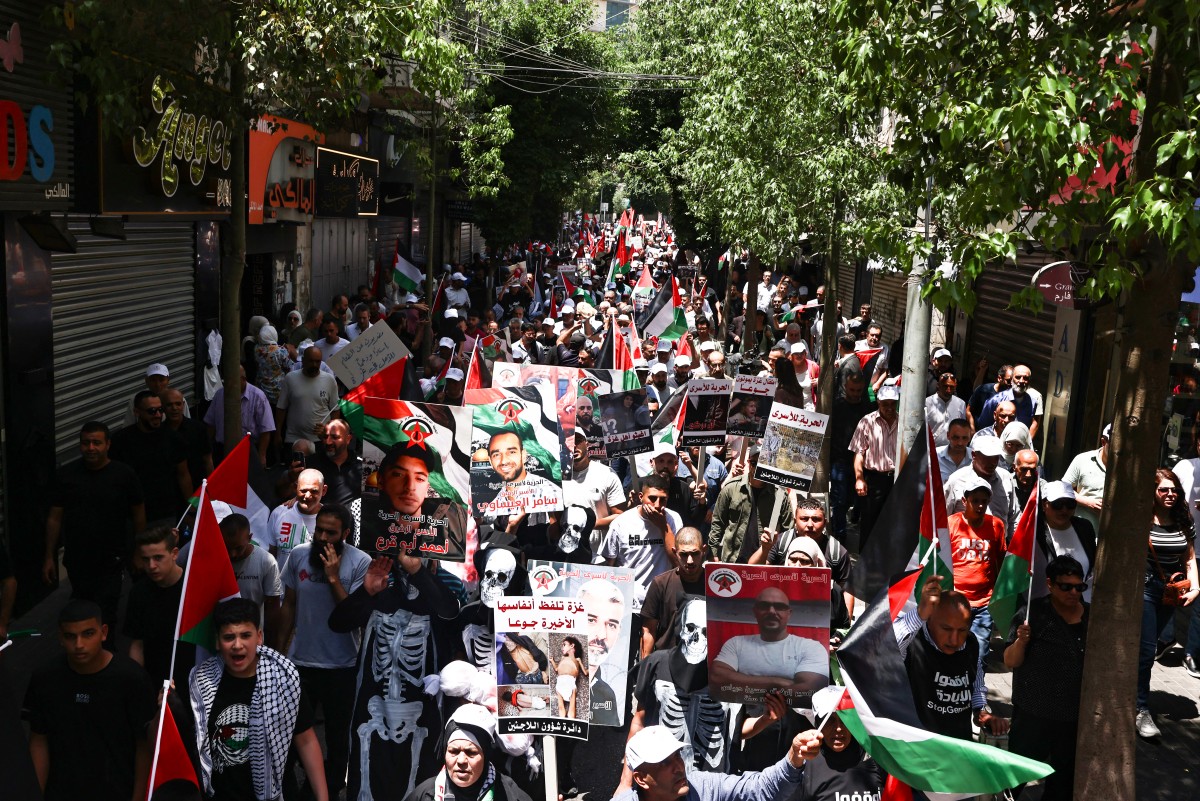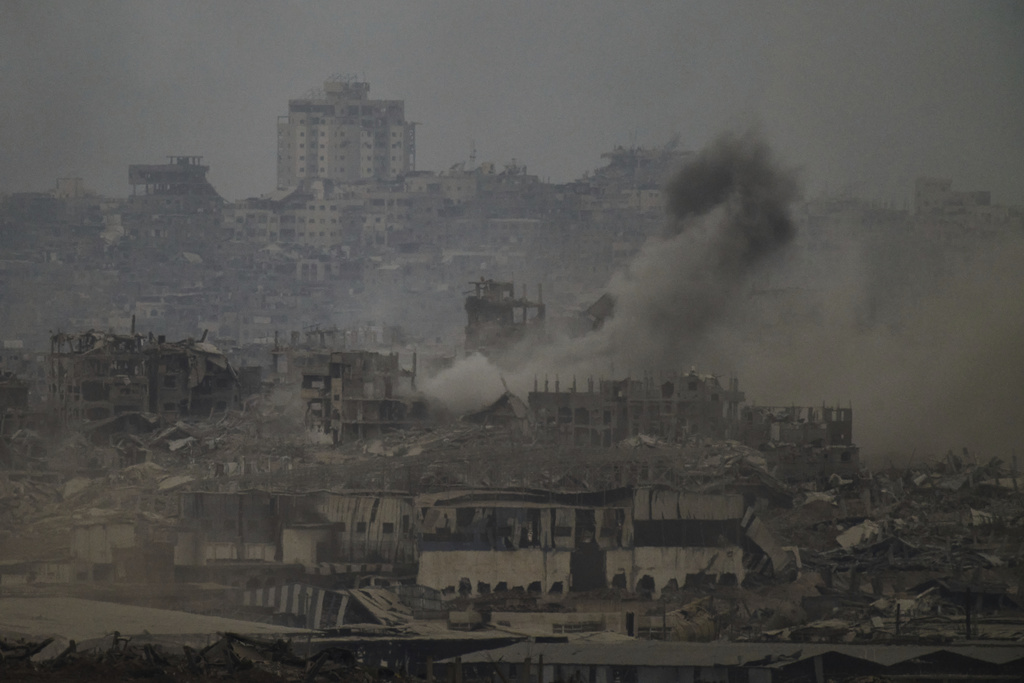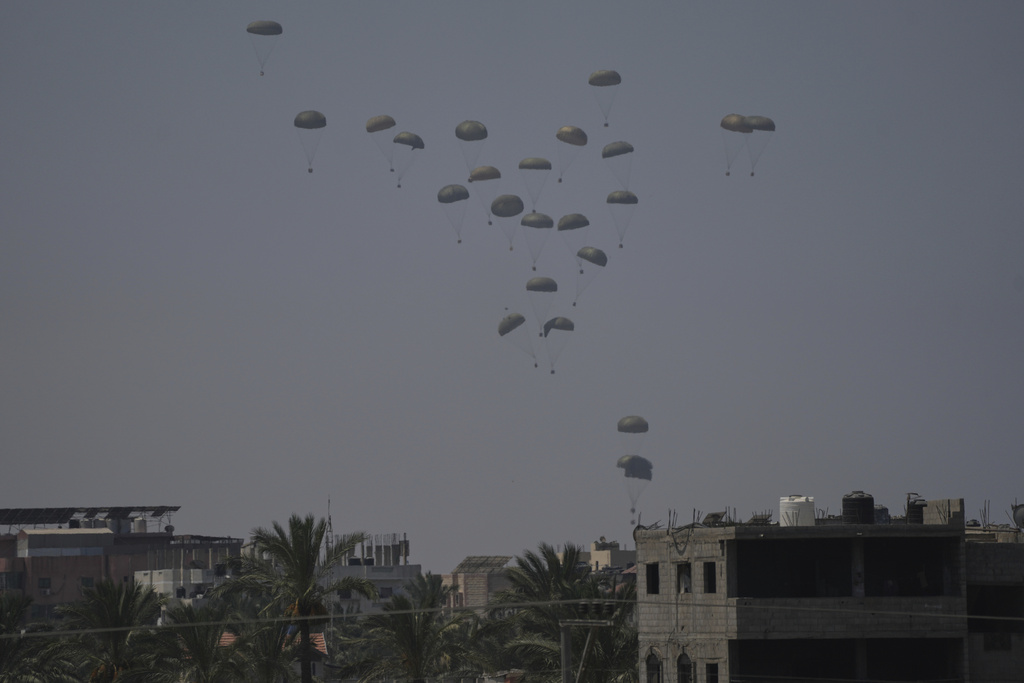
JERUSALEM/GAZA/CAIRO - Israeli National Security Minister Itamar Ben-Gvir's visit to the Al-Aqsa Mosque compound in East Jerusalem on Sunday sparked regional condemnation and raised concerns over escalating tensions.
The move came as Israeli strikes continued across the Gaza Strip. On Sunday, dozens of Palestinians were reportedly killed en route to aid distribution points, amid mounting global criticism accusing Israel of creating famine-like conditions in the besieged Palestinian enclave.
The visit also came after Hamas released videos showing an Israeli hostage in Gaza who appeared visibly frail and emaciated. The footage sparked public outrage in Israel and intensified pressure on Prime Minister Benjamin Netanyahu's government to reach a deal for the return of the remaining hostages.
In a video message recorded during his visit and posted on X, Ben-Gvir said, "Precisely from here, a message must be sent: to ensure that we conquer all of the Gaza Strip, declare sovereignty over the entire Gaza Strip, take down every Hamas member, and encourage voluntary migration (of Palestinians from Gaza)."
ALSO READ: Mideast governments condemn Israeli ultra-right minister's Al-Aqsa visit
The Israeli Prime Minister's Office released a statement following Ben-Gvir's visit, saying Israel's policy of maintaining the status quo on the site "has not changed and will remain unchanged".
Al-Aqsa Mosque compound is located in East Jerusalem, a territory Israel captured in the 1967 Middle East War and annexed shortly thereafter. The compound is now administered by the Jordanian Ministry of Awqaf and Islamic Affairs, through its Jerusalem Awqaf and Al-Aqsa Mosque Affairs Department, but is secured by Israeli police.
Under a long-held status quo, Jews are allowed to visit the site but not to pray there. However, some far-right Israelis have increasingly prayed at the site in recent years.

Protests across West Bank
Also on Sunday, thousands of Palestinians took to the street in several West Bank cities, denouncing the ongoing Israeli military offensive on the Gaza Strip and its restriction on aid delivery, which has led to widespread malnutrition and starvation in the coastal enclave.
In central Ramallah, demonstrators gathered around Al-Manara Square, waving Palestinian flags and pictures of malnutrition victims in the Gaza Strip.
Sabri Saidam, deputy secretary-general of Fatah's central committee, said in a speech during the demonstration that, "We must tell the countries of the world that have decided to recognize the State of Palestine, do not postpone this, and do not attach conditions to it."
"A bag of flour and food is not more important to Palestinians than their dignity, their homeland, their freedom, and their independence," Saidam said.
In his speech, Wasel Abu Yousef, a member of the executive committee of the Palestine Liberation Organization, urged for efforts on halting the conflict, lifting the siege, allowing the entry of humanitarian supplies, and strengthening steadfastness and resistance to achieve freedom and independence.
ALSO READ: Palestine urges full reopening of Gaza crossings as new joint aid airdrops conducted
The protests also took place in the cities of Nablus, Tubas, Qalqilya, Salfit, Jenin, and Hebron.
Meanwhile, the Hamas-run media office reported Sunday that more than 22,000 trucks carrying humanitarian aid are currently stuck at the Gaza Strip's crossing gates, most of which belong to the UN and international organizations.
Delivering food to Israeli hostages
Meanwhile, Hamas said it is ready to comply with a request from the International Committee of the Red Cross (ICRC) to deliver food and medicine to Israeli captives held in the Gaza Strip.
Abu Obeida, spokesperson for Al-Qassam Brigades, the armed wing of Hamas, said in a statement that this step, however, is contingent on "the normal and permanent opening of humanitarian corridors for the passage of food and medicine to all areas of the Gaza Strip and the cessation of all forms of enemy air raids during the delivery of parcels for the hostages."
Obeida said the Brigades "do not intentionally starve the hostages", adding that "they eat what our fighters and our people eat, and they will not receive special privileges in light of the crime of starvation and siege."
The announcement comes hours after Netanyahu made a phone call to the regional head of the ICRC, Julien Lerisson, requesting his urgent intervention to secure food and treatment for the hostages in Gaza.

75 Palestinians killed by Israeli attacks
At least 75 Palestinians were killed by Israeli gunfire and airstrikes in the Gaza Strip on Sunday, according to the Gaza Civil Defense.
Mahmoud Basal, spokesperson for the Civil Defense, told Xinhua that 28 Palestinians were killed in Khan Younis and the northern Rafah area in southern Gaza. Among them, 23 were killed near US-backed aid distribution centers and three others died when a school sheltering displaced people was shelled.
In northern Gaza, at least 18 others were killed and 198 others were injured by Israeli army fire while waiting for aid near the Zikim crossing, northwest of the town of Beit Lahia, Basal said.
In central Gaza, another seven people were killed, and 27 others were injured when the Israeli army targeted Palestinian gatherings near an aid distribution point at the Netzarim junction, he said.
ALSO READ: Israel announces daily 10-hour humanitarian pause in parts of Gaza
A Red Crescent Society employee was killed in an Israeli shelling of the society's building west of Khan Younis, while another person was killed in a strike in the same city, he added.

More humanitarian aid to Gaza
Separately, Jordan, Egypt, and the United Arab Emirates on Sunday announced that they have delivered more aid into the Gaza Strip through airdrop missions and humanitarian aid convoys.
Jordan carried out seven joint airdrop missions over the Gaza Strip, delivering a total of 61 tons of humanitarian and food assistance to the coastal enclave in cooperation with several international partners, the Jordanian Armed Forces said in a statement.
The joint operation included two aircraft from the Royal Jordanian Air Force, along with planes contributed by Germany, the UAE, France, and Belgium.
Meanwhile, Egypt on Sunday sent a new humanitarian aid convoy to the Gaza Strip through the Rafah border crossing, en route to the Kerem Shalom crossing for inspection ahead of entry into the Palestinian enclave, Egypt's Al-Qahera News TV channel reported.
The aid convoy, organized by the Egyptian Red Crescent, includes dozens of trucks loaded with food supplies, medical equipment, and essential medicines, in addition to two fuel trucks carrying 107 tons of diesel designated to power critical infrastructure in Gaza, such as hospitals and water stations.
READ MORE: Hamas says Israeli delegation to return for talks next week
The Egyptian Armed Forces also said that nine military transport aircraft have carried out airdrop operations over the past 72 hours, delivering dozens of tons of food supplies to areas in Gaza that are inaccessible by land.
According to a report by the Emirates News Agency, the UAE has delivered a new shipment of medical supplies to the Gaza Strip in cooperation with the World Health Organization.


